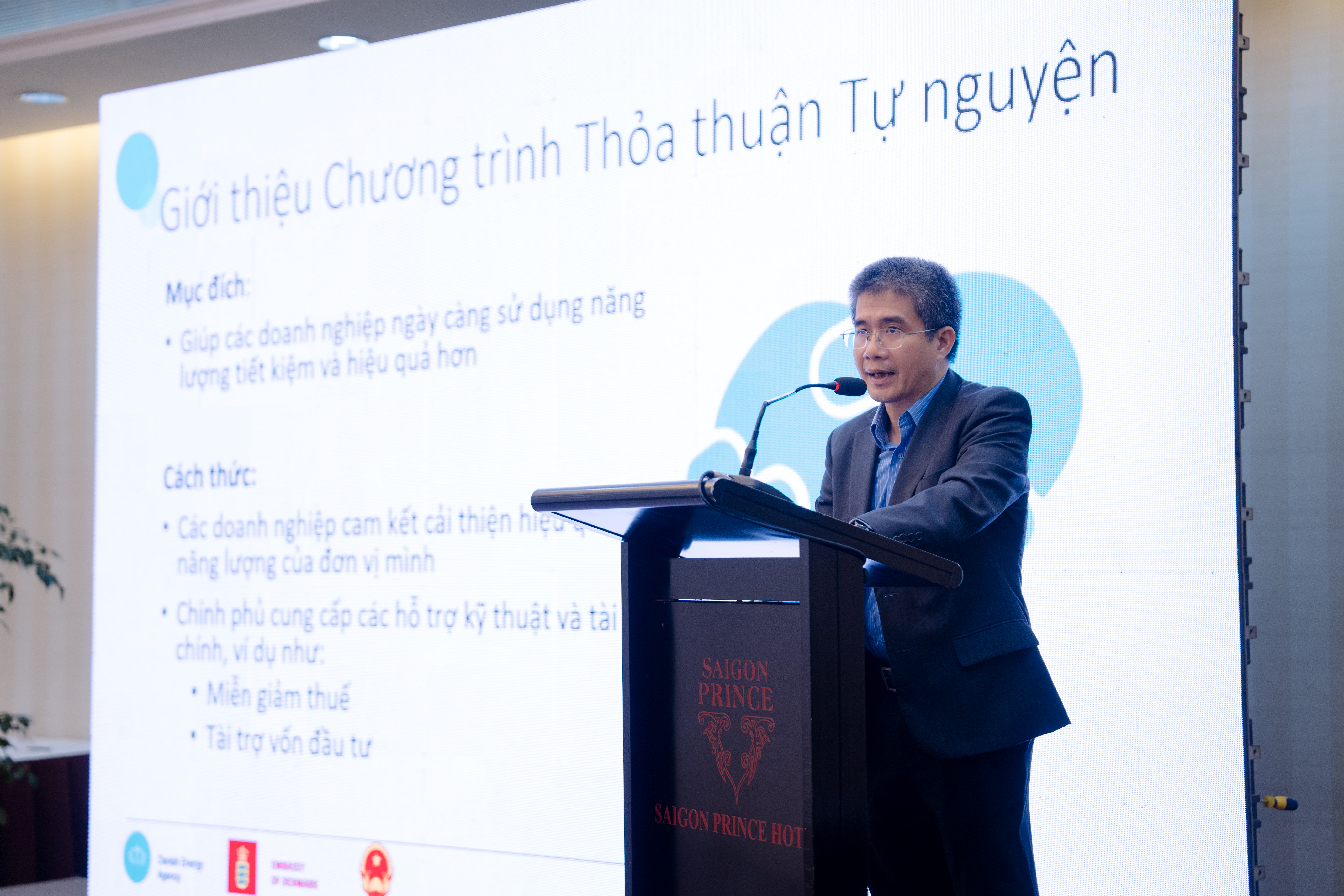Vietnam is steadily improving its mechanisms and policies to promote the efficient and economical use of energy in the industrial sector. Within the framework of the Energy Partnership Program between Vietnam and Denmark (DEPP3), the pilot implementation of the Voluntary Agreement Scheme (VAS), modeled after Denmark’s successful approach, has yielded positive results. The program not only helps local enterprises enhance their energy efficiency but also provides valuable references from Denmark’s successful model.
.jpg)
The consultation conferences took place across Vietnam’s three regions, gathering feedback from regulatory agencies, experts, enterprises, and other stakeholders to strengthen the legal framework and promote sustainable energy use in Vietnam.
VAS Program: A Successful Danish Model Piloted in Vietnam
At the conferences organized by MOIT, Mr. Nguyen Thanh Ha, an energy efficiency expert from the DEPP3 Program, introduced the successful model of VAS in Denmark. Under this scheme, enterprises voluntarily commit to implementing energy efficiency measures to receive technical and financial support from the government. The support mechanisms include tax incentives, investment support, and access to advanced technologies.
Between 2015 and 2018, the VAS Program supported 80 enterprises in implementing over 800 projects, saving 333,500 kWh per year. Notably, 70% of these projects achieved payback within five years, demonstrating the financial viability of this model. Thanks to apparent support policies and effective financial mechanisms, Danish enterprises not only reduced energy consumption but also improved their technological capabilities and competitiveness.
Leveraging Denmark's experience, DEPP3 has supported the pilot implementation of the VAS Program in several energy-intensive industries in Vietnam. Initial outcomes include two completed feasibility studies (FS) and the identification of investment projects by enterprises. These results demonstrate the readiness of industrial enterprises to adopt energy efficiency solutions. However, the lack of qualified human resources and technical experts remains a key challenge, affecting the implementation of energy efficiency measures.

Mr. Nguyen Thanh Ha, an expert from the DEPP3 Program, shared his insights at the Consultation Conference series on the amendment of the Law on Economical and Efficient Use of Energy organized by the Ministry of Industry and Trade.
Lessons from Danish Energy Efficiency Business Fund
One of Denmark’s effective financial tools for promoting energy efficiency is the Energy Efficiency Business Fund. The fund aims to support enterprises in reducing energy consumption and greenhouse gas emissions by covering up to 50% of eligible costs for each project, significantly reducing the investment burden for energy efficiency technologies and equipment.
Operating from 2020 to 2029, the fund is projected to allocate approximately $500 million for energy efficiency projects, such as replacing boilers with heat pumps, upgrading lighting systems, and implementing heat recovery solutions.
According to Mr. Nguyen Thanh Ha, Denmark’s experience and the practices of other advanced countries can provide valuable references for Vietnam as it considers establishing and operating a national Energy Efficiency Fund.
Vietnam is currently revising the Law on Economical and Efficient Use of Energy, with several groundbreaking proposals to enhance energy efficiency. DEPP3 will continue working closely with relevant authorities to provide input and support Vietnam in developing appropriate policies, contributing to the national energy efficiency and sustainable development goals.
- Presentation on "Experiences in Promoting Energy Efficiency: Insights from the Pilot Program and Lessons from Denmark" by DEPP3 experts [HERE]
- Photos from the Northern Region Conference [HERE]
- Photos from the Central and Central Highlands Region Conference [HERE]
- Photos from the Southern Region Conference [HERE]